Lygia Pape
The Skin of ALL
19 Mar - 17 Jul 2022
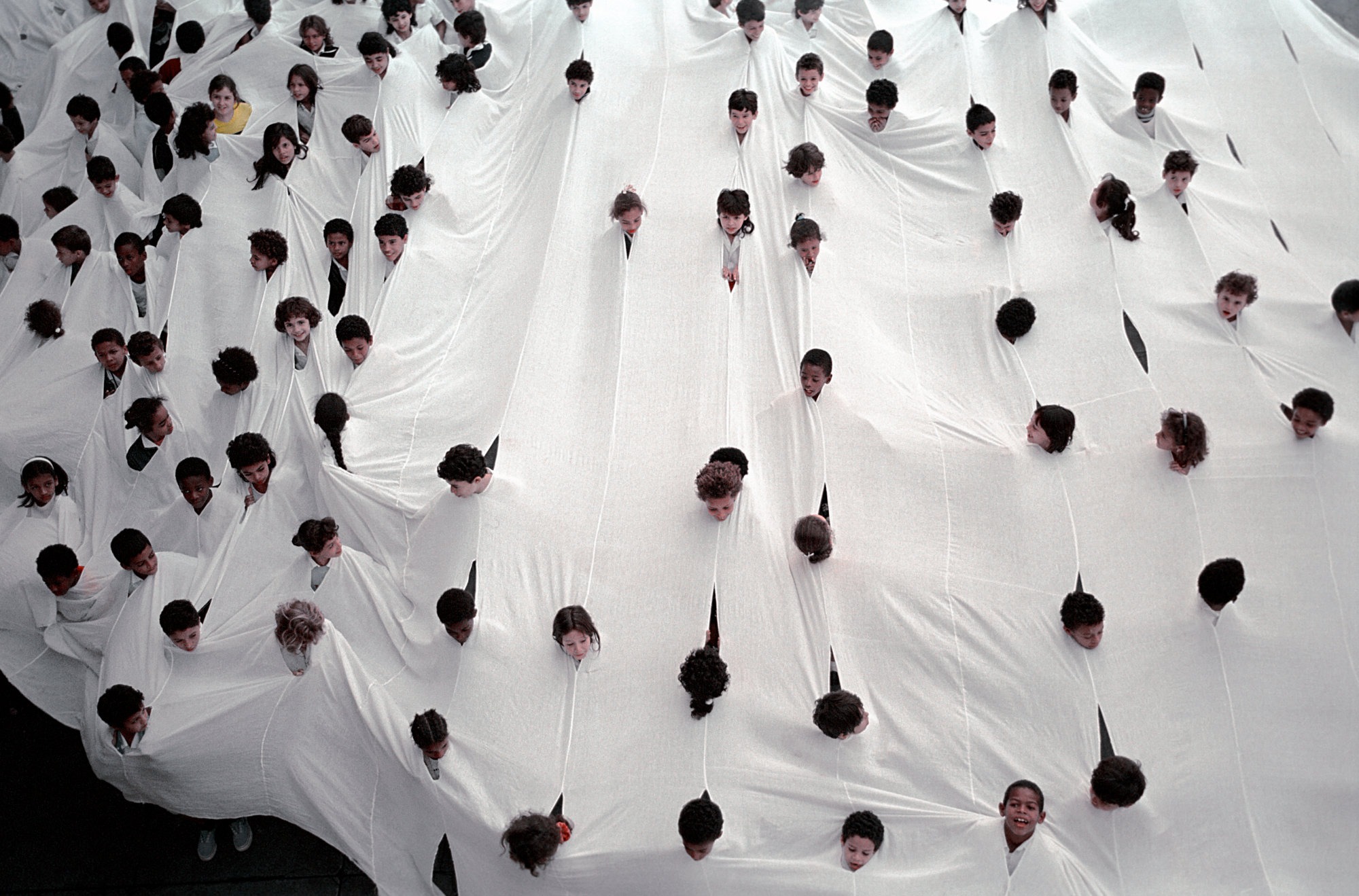
Lygia Pape, “Divisor” (“Divider”) – 1968, performance at Museu de Arte Moderna, Rio de Janeiro, 1990 © Projeto Lygia Pape
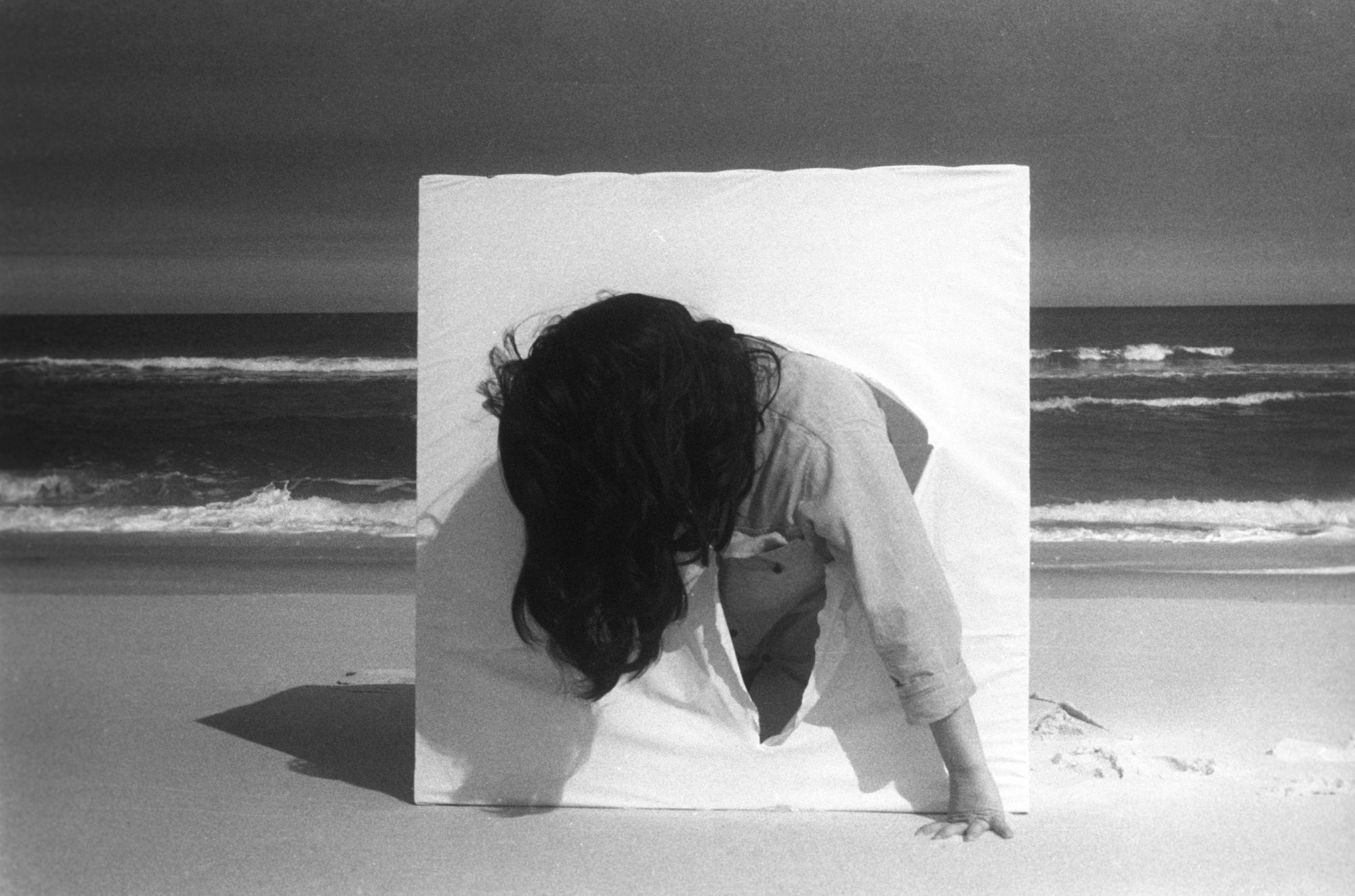
Lygia Pape. The Skin of ALL | Lygia Pape, “O Ovo” (“The Egg”) – 1967, vintage black and white photo-graph © Projeto Lygia Pape
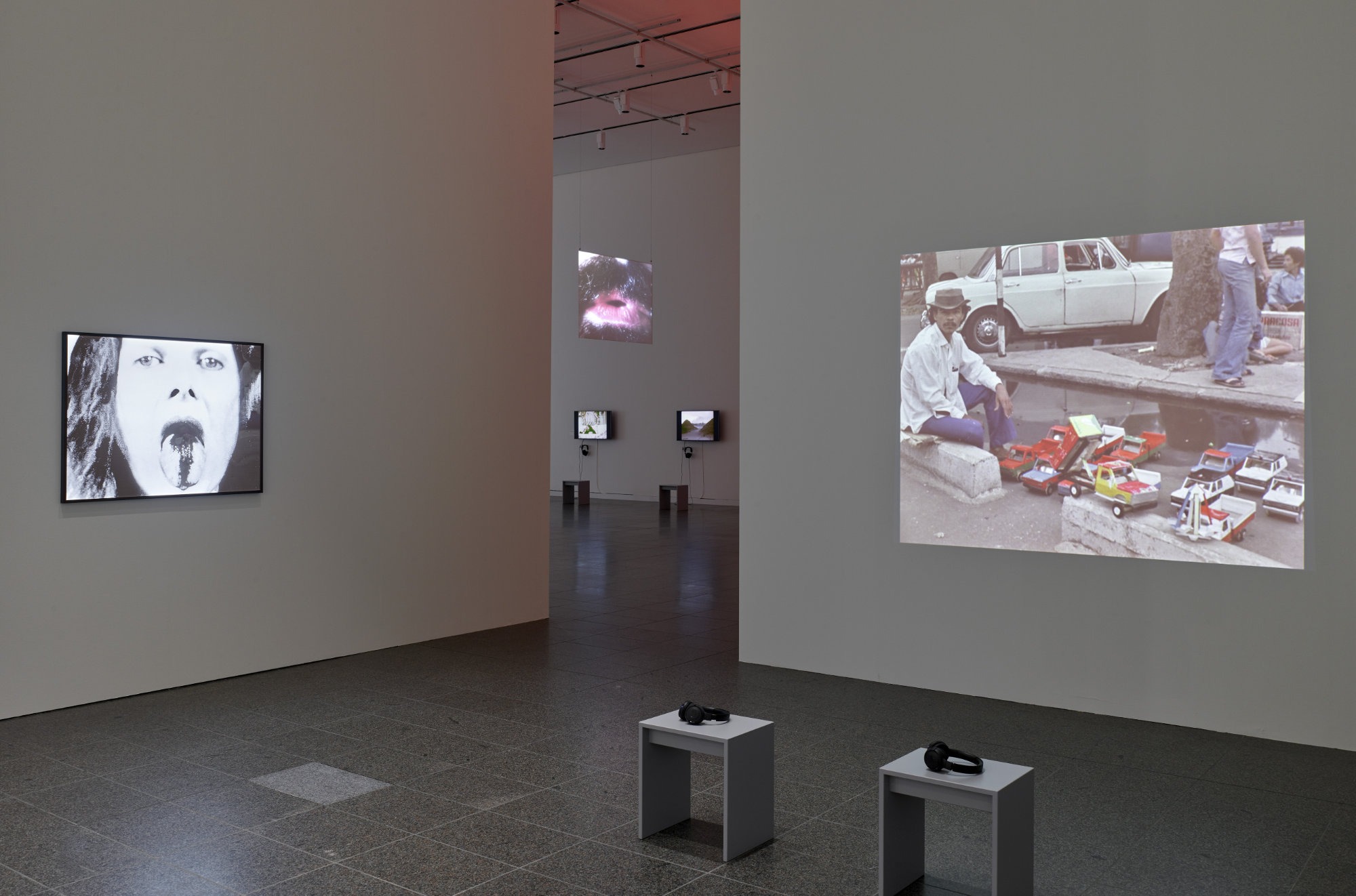
Lygia Pape, left: Lingua apunhalada (Stabbed Tongue) – 1968, photograph, lightbox; right: A mão do povo (The Hand of the People) – 1975, 16 mm film, converted to digital, color, sound, 11‘40‘‘, installation view K20, Kunstsammlung Nordrhein-Westfalen 2022, photo: Achim Kukulies
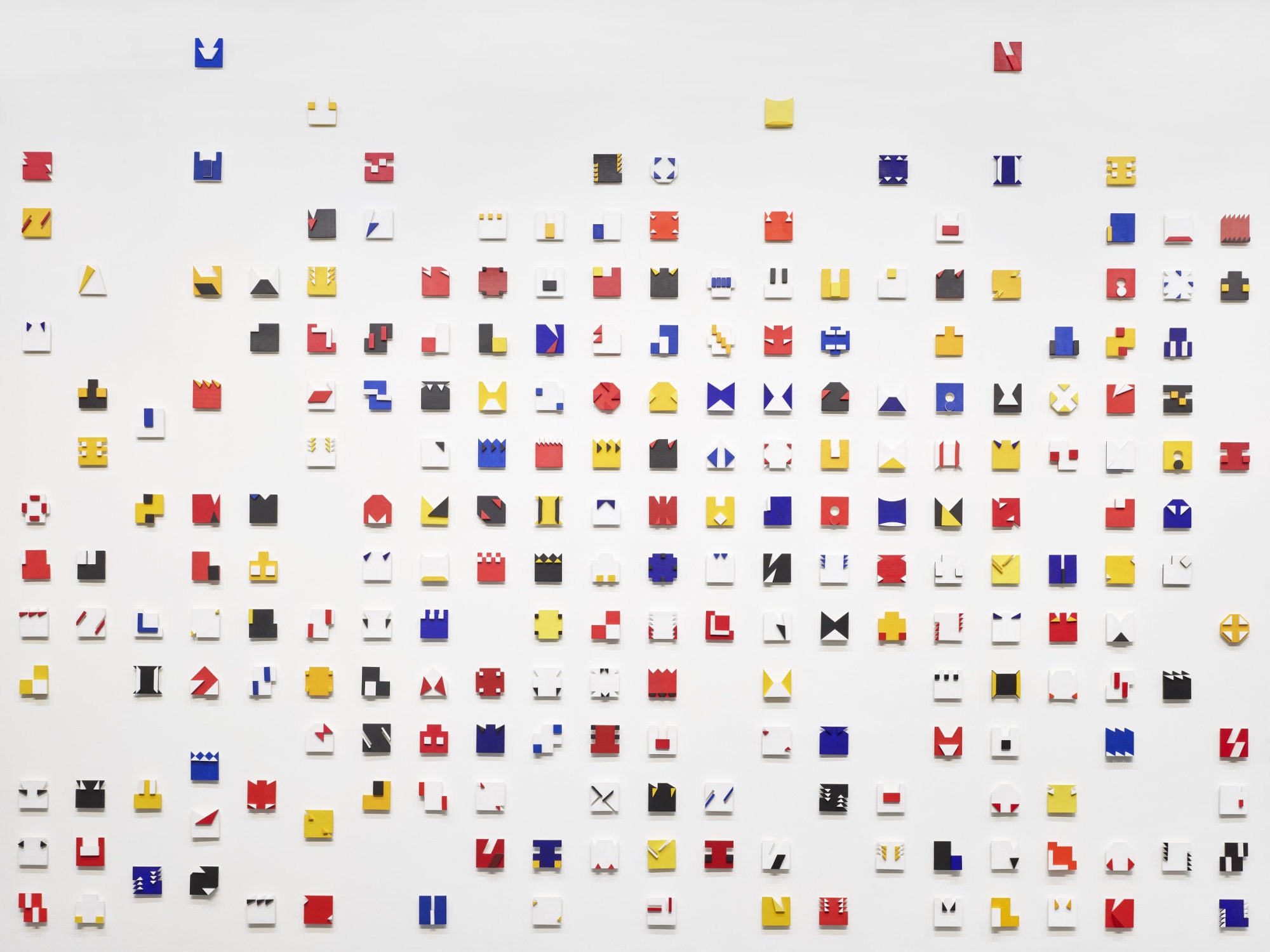
Lygia Pape, Livro do tempo (Book of Time) – 1961–1963, Tempera and acrylic on wood, © Projeto Lygia Pape, installation view K20, Kunstsammlung Nordrhein-Westfalen 2022, photo: Achim Kukulies
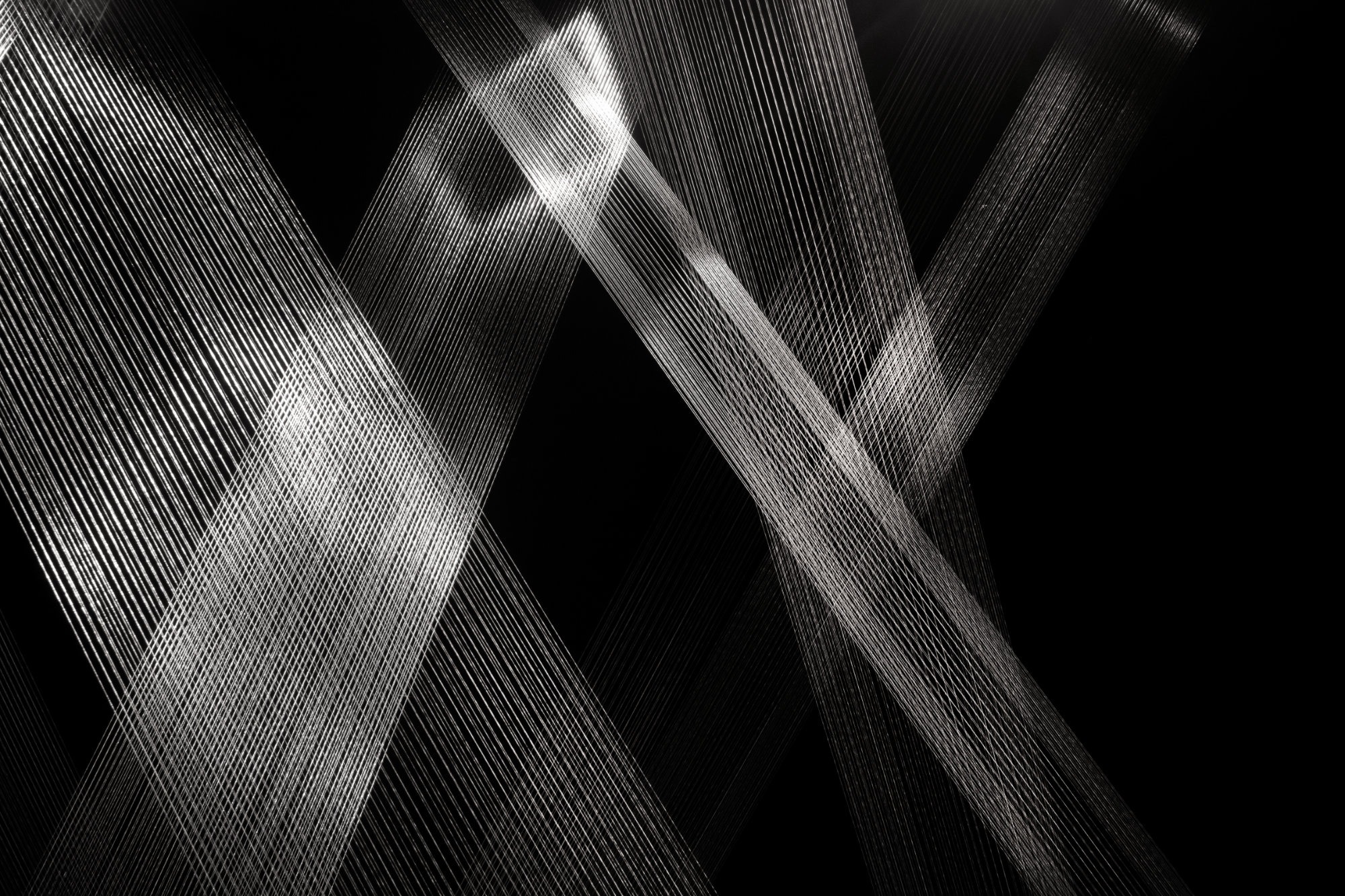
Lygia Pape, Ttéia 1C – 2001/2022, silver thread, wood, nails and light, © Projeto Lygia Pape, installation view K20, Kunstsammlung Nordrhein-Westfalen 2022, photo: Achim Kukulies
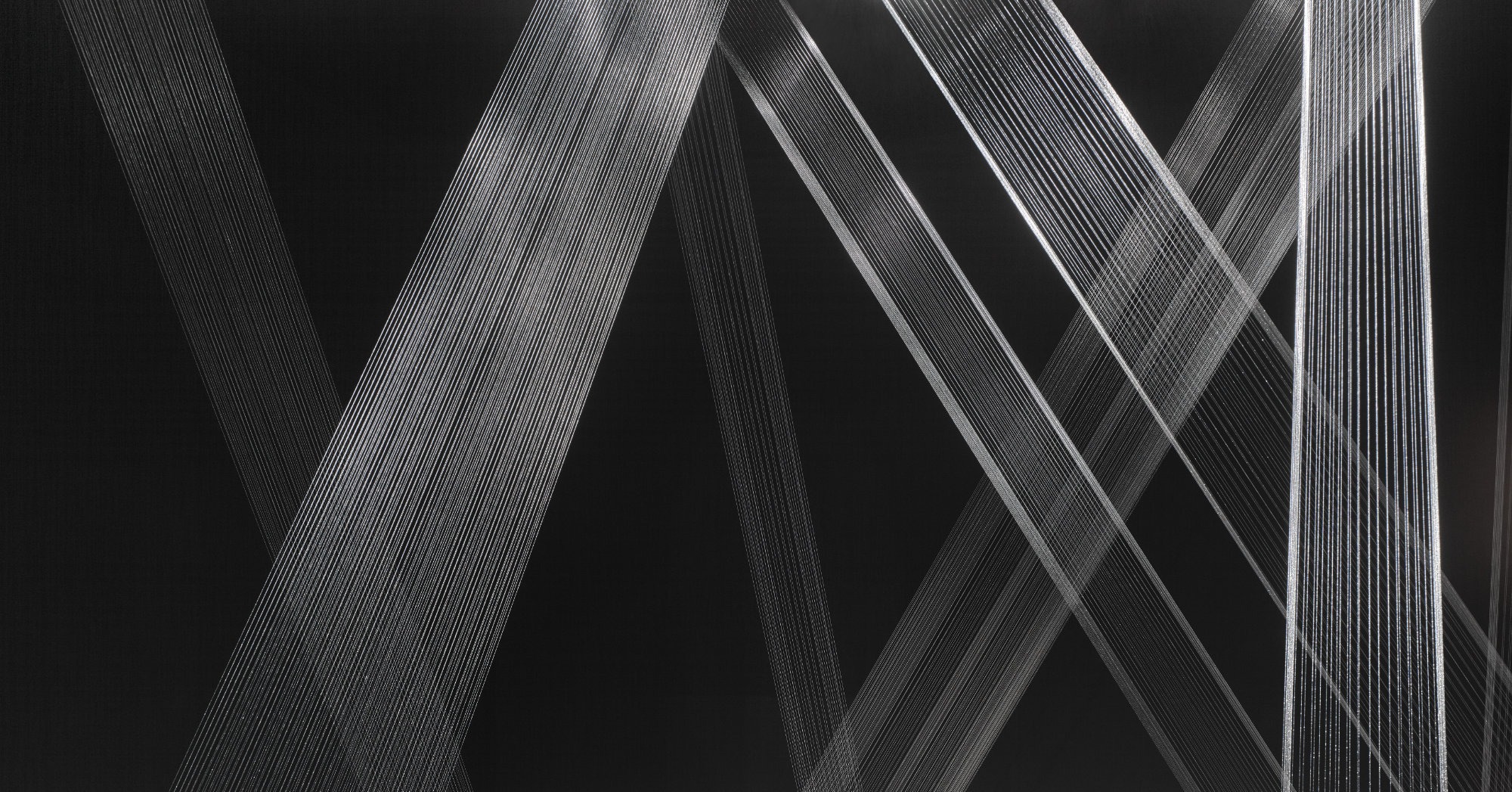
Lygia Pape. The Skin of ALL | Lygia Pape, “Ttéia 1C” - 2001/2022, silver thread, wood, nails and light, © Projeto Lygia Pape, Courtesy Projeto Lygia Pape, photo: Pedro Pape
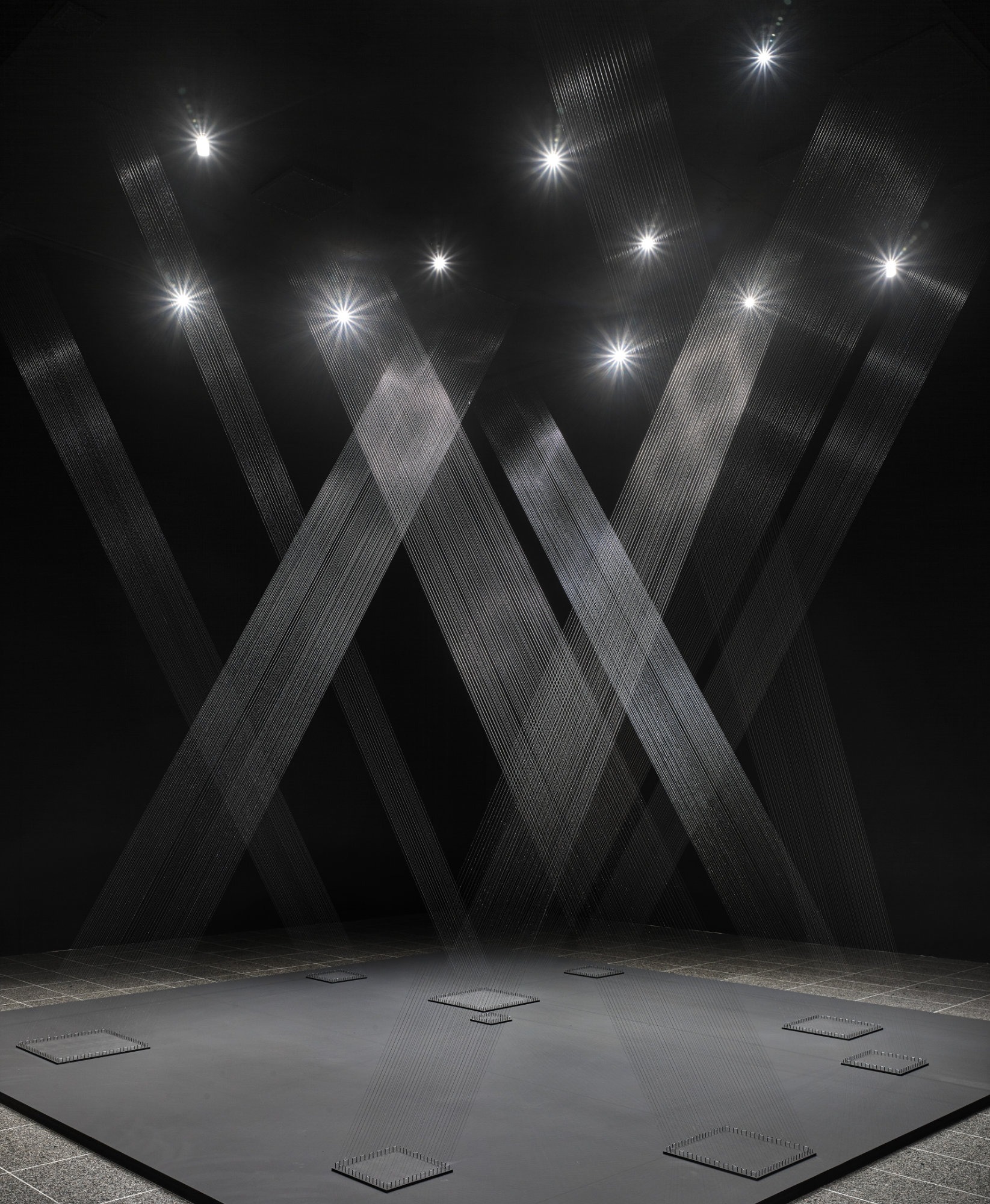
Lygia Pape, Ttéia 1C – 2001/2022, silver thread, wood, nails and light, © Projeto Lygia Pape, installation view K20, Kunstsammlung Nordrhein-Westfalen 2022, photo: Achim Kukulies
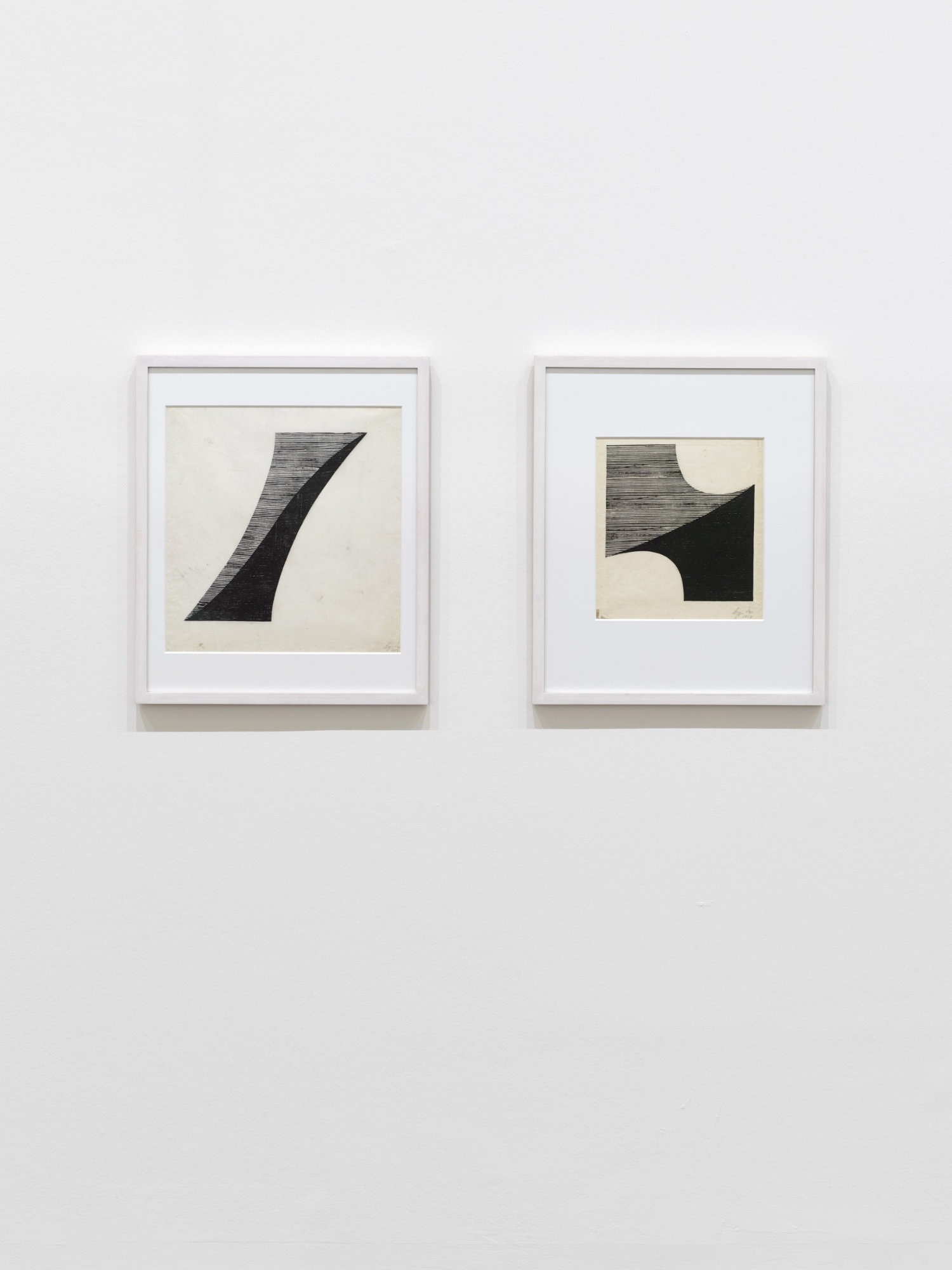
Lygia Pape, Tecelar – 1958, Woodcut on Japanese paper, and Tecelar – 1958, Woodcut on Japanese paper, © Projeto Lygia Pape, installation view K20, Kunstsammlung Nordrhein-Westfalen 2022, photo: Achim Kukulies
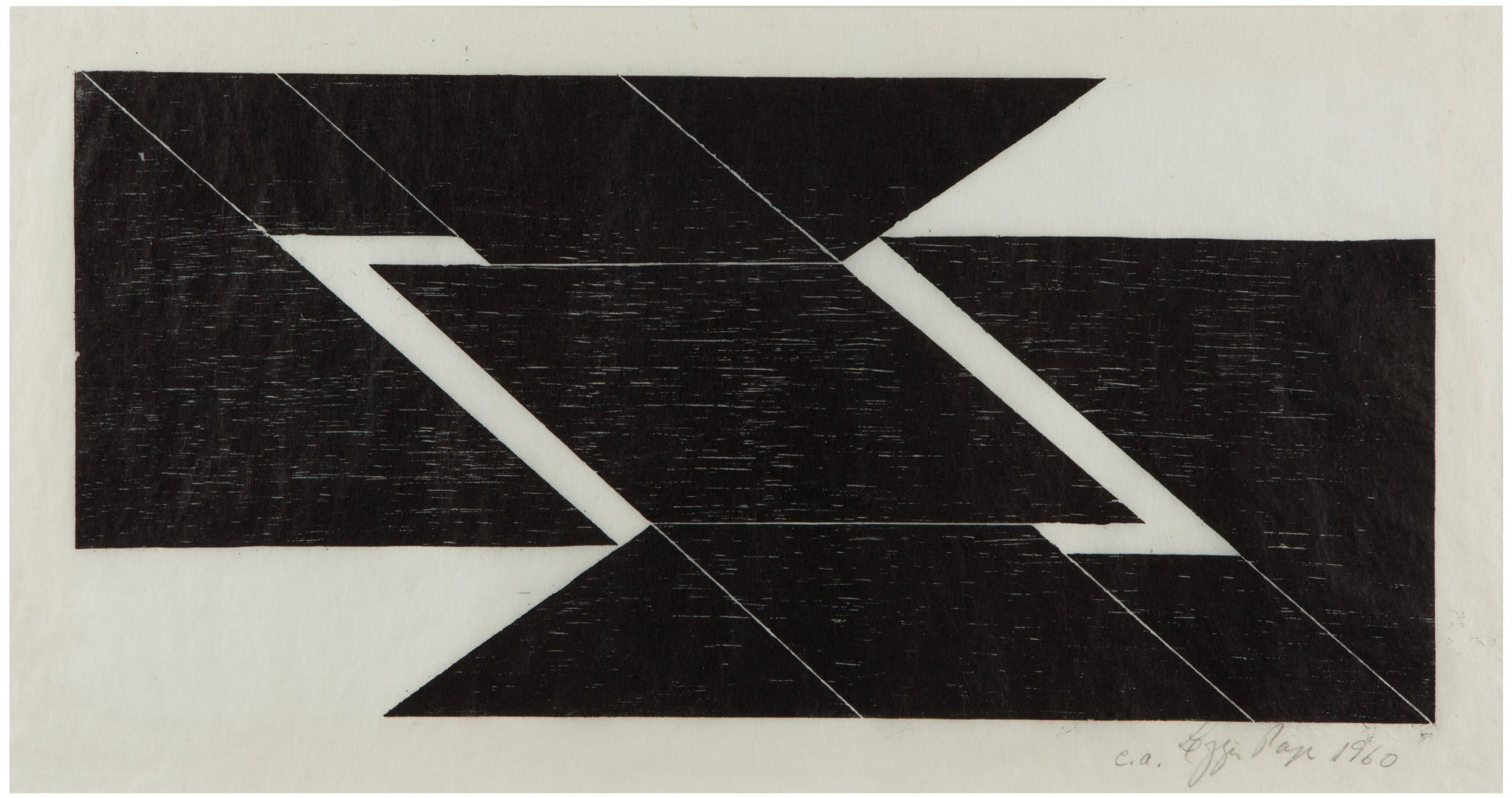
Lygia Pape. The Skin of ALL | Lygia Pape “Untitled (Tecelar)” – 1960, woodcut on Japanese paper, 32 x 54 cm, Estrellita and Daniel Brodsky Collection © Projeto Lygia Pape
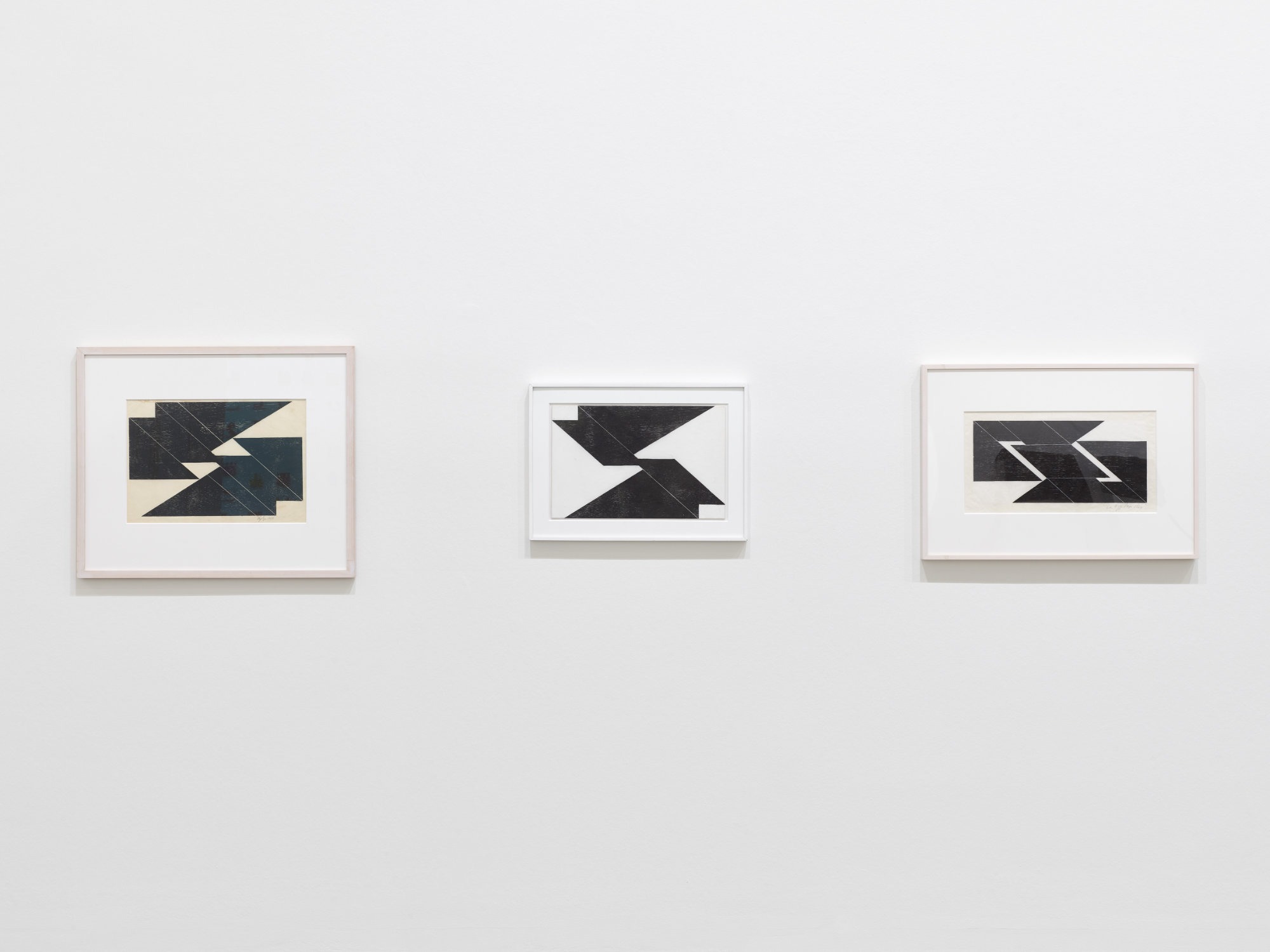
Lygia Pape, links: Tecelar – 1959, Woodcut on Japanese paper, middle: Untit-led (Tecelar)” – 1958, Woodcut on Japanese paper, Courtesy The Ella Fontanals-Cisneros Collection, Miami, right: Untitled (Tecelar) – 1960, Woodcut on Japanese paper, Estrellita and Daniel Brodsky Collection, © Projeto Lygia Pape, installation view K20, Kunstsammlung Nordrhein-Westfalen 2022, photo: Achim Kukulies
The Kunstsammlung Nordrhein-Westfalen is dedicating the first comprehensive solo exhibition in Germany to the Brazilian avant-garde artist Lygia Pape (1927–2004). Titled “The Skin of ALL,” the exhibition shows her transgressive art which, on the one hand, features an abstract-geometric formal language and, on the other hand, manifested itself as subtle, poetic resistance against the backdrop of a twenty-year dictatorship in Brazil.
Her work, which she developed with an irrepressible joy of experimen- tation over the span of five decades, is characterized by a wide variety of media and an interdisciplinary approach. In addition to abstract-geometric paintings, drawings, reliefs, and abstract woodcuts, her oeuvre includes ballet compositions, participatory sculptures, and poems as well as experi- mental films, immersive spatial installations, and collective performances in public spaces.
Lygia Pape, together with Lygia Clark and Hélio Oiticica, was one of the key figures of the Neo-Concrete Movement in Brazil in the 1950s and 1960s. Her specific understanding of a geometric abstraction resulted in a radical reconceptualization of concrete constructivist art, centering on the idea of the open work. In addition to ethical and socio-political issues, Pape included all the senses in her works and and turned the passive spectators into active participants.
In the front section of the Klee Halle, the retrospective presents early works from the time of the Grupo Frente and the Neo-Concrete Movement. In the rear section of the exhibition are room-sized installations and video works, almost all of which were created during the military dictatorship (1964–1985). The title of the exhibition “The Skin of ALL” quotes a text by Pape on her work Divisor (1968), whose idea of an all-connecting mem- brane or skin in space can also be applied to many of her other works.
The exhibition presents the multifaceted work of this extraordinary artist and honors her as an enriching voice within a global development of art.
Curator: Isabelle Malz
Her work, which she developed with an irrepressible joy of experimen- tation over the span of five decades, is characterized by a wide variety of media and an interdisciplinary approach. In addition to abstract-geometric paintings, drawings, reliefs, and abstract woodcuts, her oeuvre includes ballet compositions, participatory sculptures, and poems as well as experi- mental films, immersive spatial installations, and collective performances in public spaces.
Lygia Pape, together with Lygia Clark and Hélio Oiticica, was one of the key figures of the Neo-Concrete Movement in Brazil in the 1950s and 1960s. Her specific understanding of a geometric abstraction resulted in a radical reconceptualization of concrete constructivist art, centering on the idea of the open work. In addition to ethical and socio-political issues, Pape included all the senses in her works and and turned the passive spectators into active participants.
In the front section of the Klee Halle, the retrospective presents early works from the time of the Grupo Frente and the Neo-Concrete Movement. In the rear section of the exhibition are room-sized installations and video works, almost all of which were created during the military dictatorship (1964–1985). The title of the exhibition “The Skin of ALL” quotes a text by Pape on her work Divisor (1968), whose idea of an all-connecting mem- brane or skin in space can also be applied to many of her other works.
The exhibition presents the multifaceted work of this extraordinary artist and honors her as an enriching voice within a global development of art.
Curator: Isabelle Malz
